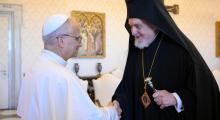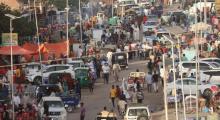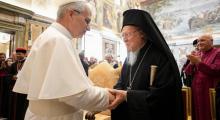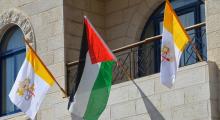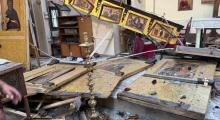Issued by the Catholic Center for Studies and Media - Jordan. Editor-in-chief Fr. Rif'at Bader - موقع أبونا abouna.org
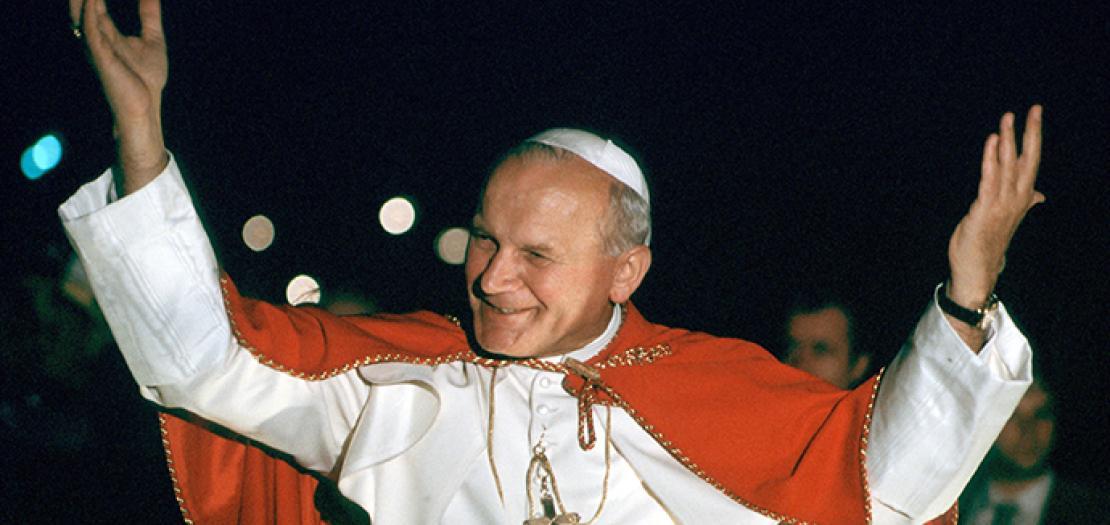
As the 20th anniversary of St. John Paul II’s death is marked on April 2, top world leaders and thinkers gathered in Poznan, Poland, to discuss his legacy.
A common thread of their memories and interventions was that the pope from Poland was a sensation of the times whose steadfast faith brought humanity more freedom and true spiritual leadership — and continues the drive for freedom in today’s world.
Hanna Suchocka, Polish prime minister in early 1990s and ambassador of Poland to the Holy See in the final years of John Paul’s pontificate said in her remarks that speakers at the conference she and her team organized are “the last generation that can point out that papal teaching is not only history” but is rooted in reality.
She said John Paul “became a sign of hope for all of us — those that lived under the communist rule, but also those that lived on ‘a better side’ of the wall.” She pointed out that “we didn’t fight for a free world” under the Iron Curtain of Cold War divisions to become closed “yet again” today, polarized against each other and that all the more now we need to reject “trivializing” John Paul’s teaching and remind the world of “its true meaning.”
If there are two people that immediately come to mind as iconic Poles to anyone in the world, it’s most probably Karol Wojtyla, elected Pope John Paul II, and Lech Walesa.
The leader of the first free trade union in a communist country — Solidarity — a movement that led to first free elections in Poland in June 1989 and eventually the fall of communism throughout Eastern Europe, said that the pope was a believer in the cause of freedom from communism. It was the pope’s faith in the peaceful revolution that kept Solidarity leaders going in times of persecution, Walesa said.
“When a Pole became pope — a year after his election he came to Poland and organized us to pray, not to start a revolution. He allowed us to notice how many of us there are. At the same time the pope said: ‘change the face of the earth.’ We stopped being afraid,” Walesa told a packed auditorium at the Adam Mickiewicz University in Poznan March 26 during the conference titled “John Paul II — to Read History, to Form History.”
Elected pope on Oct. 16, 1978, John Paul visited his country only seven months later, in June 1979. Eleven million people in a nation of 36 million at the time came to see the pope in person.
“Up to that point I was organizing the fight against communism. The pope accelerated those processes and made them bloodless,” said Walesa, who was president of Poland from 1990 to 1995.
Norman Davis, professor of history at Oxford, Cambridge and London universities, said that Solidarity, a movement supported spiritually and organizationally by the pope, was a “sensation of the times.”
John Paul “was a master of conveying information not through harsh words. He never condemned the communist system. He always spoke in a gentle language that was much stronger than harsh words. He didn’t offend anyone, but got his point across,” Davis said.
Hans-Gert Pöttering said that when he was about to meet the pope for the first time in 1981, John Paul was an hour late to that meeting.
“He was on the phone with Lech Walesa,” the German lawyer, historian and conservative politician, said in Poznan, testifying to the ongoing commitment of the pope to support the freedom movement.
“If someone told me then, ‘Poland will be free,’ I wouldn’t believe it,” said Pöttering, who served as president of the European Parliament 2007-2009.
He pointed out that “we wouldn’t be in Poznan today” if it were not for John Paul telling the Polish people, “Don’t be afraid, change the world.”


